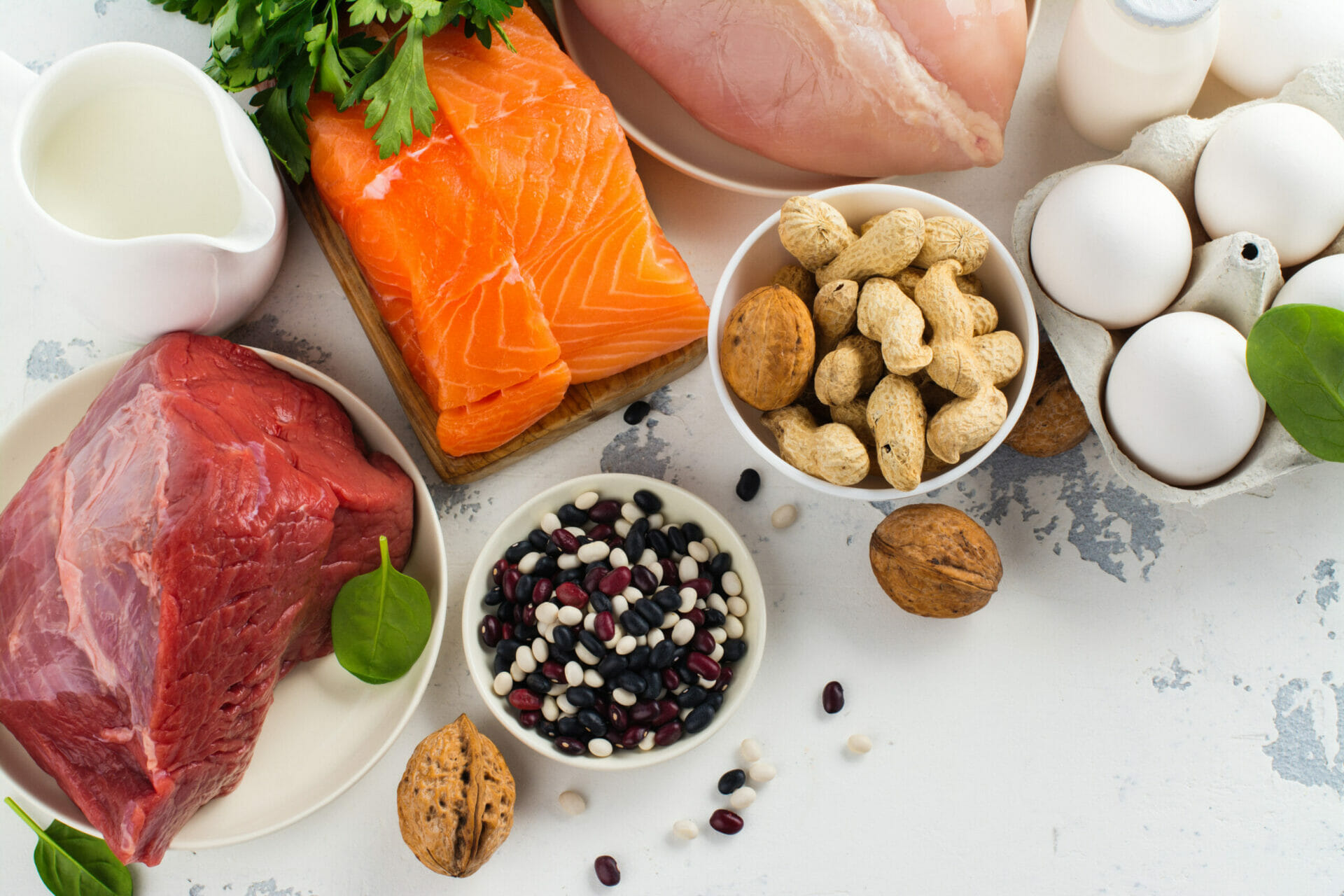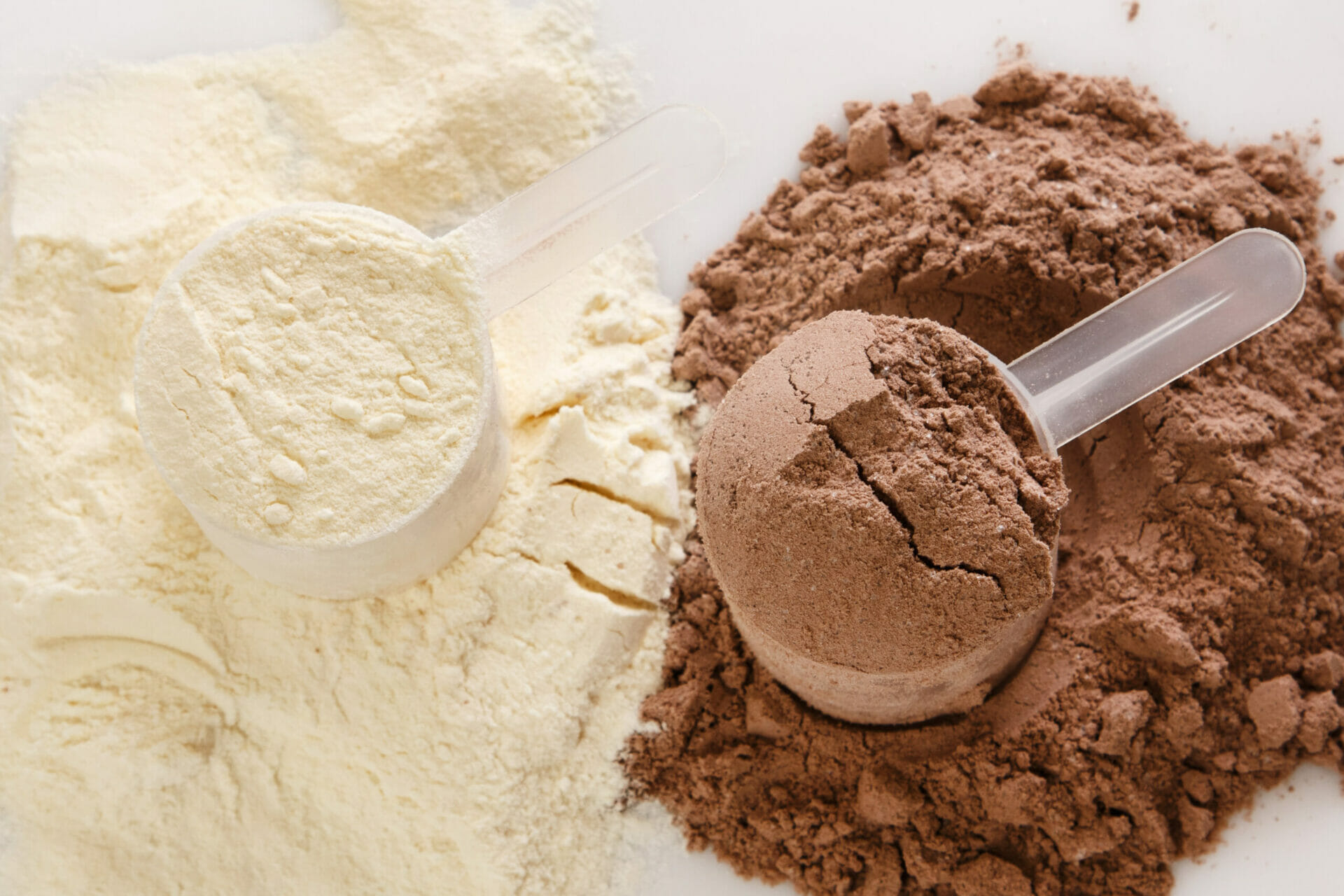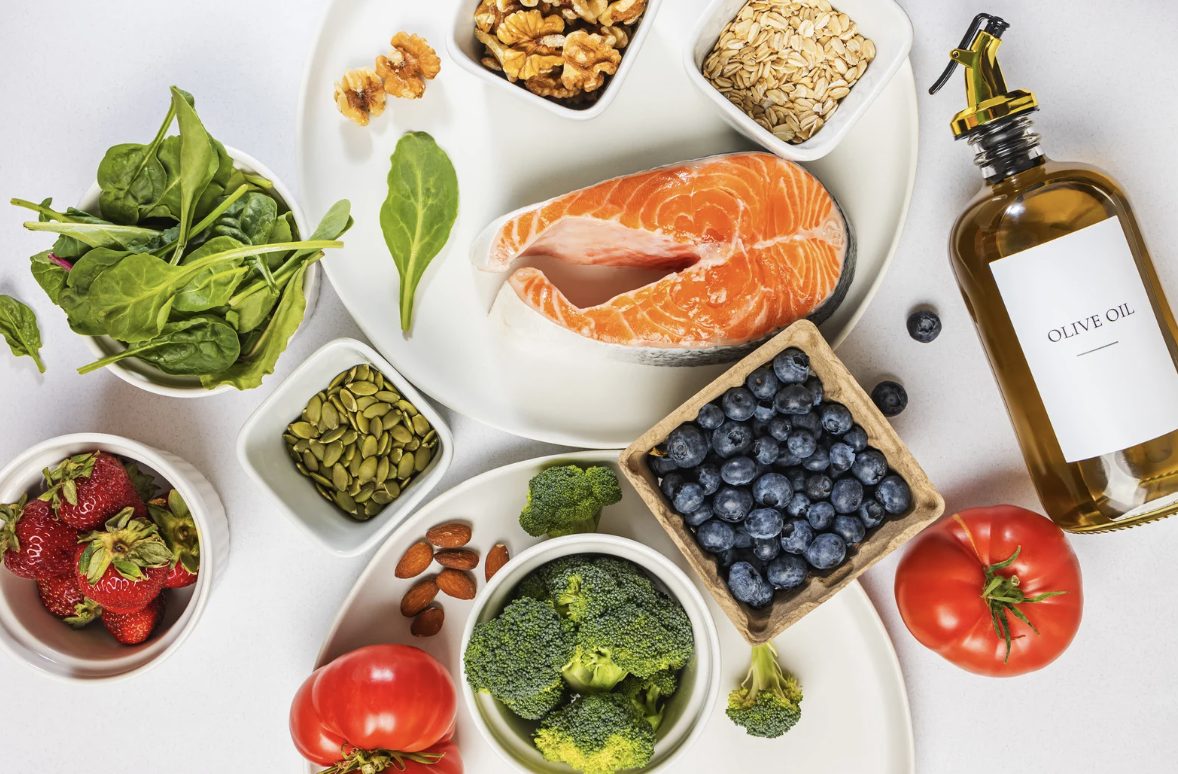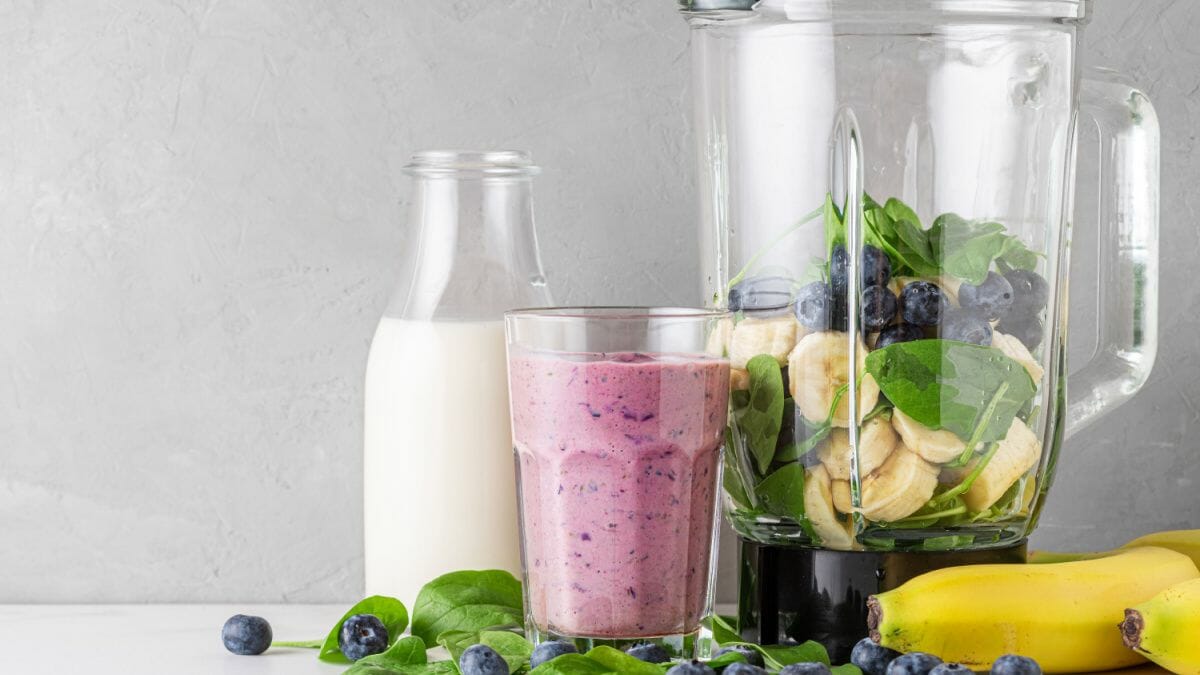By Ashleigh Kidd, RD, LDN | September 2022

Plant protein, animal protein, powders, food…..there are several options when it comes to your protein intake these days, and some forms might work better for your lifestyle than others. I’m going to walk you through the importance of protein, which foods you can get it from, and if and/or when a protein powder or supplement might benefit you.
Let’s start with the basics: what is protein?
Alongside fat and carbohydrates, protein is one of the three macronutrients. Protein is an essential nutrient made up of amino acids, which help to grow, repair, and maintain our bodies tissues everyday (think skin cells, blood cells, muscles, and more!). Because we aren’t able to produce all amino acids naturally, it’s important to get these from the foods we eat (essential amino acids). Protein sources that contain all nine of these essential amino acids that we need to get from food are called complete proteins.
Protein is found in a variety of both animal and plant food sources including:
- Beef
- Fish
- Dairy
- Nuts and Seeds
- Turkey
- Beans & Lentils
- Eggs
- Chicken
- Pork
- Soy Products
- Whole Grains
Protein from animal sources are considered complete proteins and supply us the essential amino acids that we need. Plant based protein sources are considered “incomplete proteins”, but we can still get all of the essential amino acids that we need by eating a variety of these foods throughout the day/week. Ideally it’s great to have a mix of both animal and plant based foods included in your diet.
Protein Needs: It’s important to note that everyone has different protein needs, typically determined by weight, activity level, types of workouts, and sometimes other factors like medical history. If you’re not sure how to determine your protein needs or want to make sure you’re consuming enough, reach out to your Medical Doctor or Registered Dietitian.
Now let’s dig into what you’ve been waiting for: Protein Powders

Protein powders can be a very convenient way to increase your overall protein intake. With just the shake of a bottle you can consume 15-30g protein depending on which brand you’re using, which can help you reach your protein needs if you’re not quite reaching it from food alone. We know that consuming protein after a vigorous workout can assist with muscle gains and recovery, so having protein powder on hand can be useful if you won’t be eating a balanced and protein-dense snack or meal anytime soon.
Different types of protein powders:
Whey Protein: a complete protein with all of the essential amino acids, derived from cows milk. Unless you have a lactose intolerance or certain dietary restrictions and/or preferences which exclude milk products or byproducts, whey protein powder is a great high protein source.
Plant Protein: if you do have dietary restrictions, preferences, or allergies, plant protein may be a good option for you! Some of the most common plant based protein powders come from pea protein, soy protein, hemp protein, and brown rice powder.
Another well known protein supplement is collagen powder. This is protein powder made from connective tissue, skin, tendons, bone, and cartilage of animals. This has become very popular in the wellness world, but I would recommend being aware of the health claims surrounding the supplement. It’s important to remember that it’s just another incomplete protein and should be used in conjunction with a balanced and varied diet, including other complete protein sources. Because collagen powder is essentially tasteless, it can be convenient to add to smoothies and coffee.
Regardless of the type of protein powder you choose (if you so choose), consider checking for third party testing, such as NSF certified products.
Bottom line on protein powder:
Protein powder is sometimes marketed as essential, magical, and the end all be all when it comes to muscle gains and/or fat loss, with false claims and promises sometimes attached. Overall, supplements might not hurt, but if you’re eating a balanced diet, you are likely getting the protein and other nutrients you need from food, and protein powder isn’t always necessary. That being said, protein powder can be a great and convenient tool to assist with overall protein intake.
Make sure to check out our Nutrition by Addition blog for tips on adding balance including protein to your meals.






